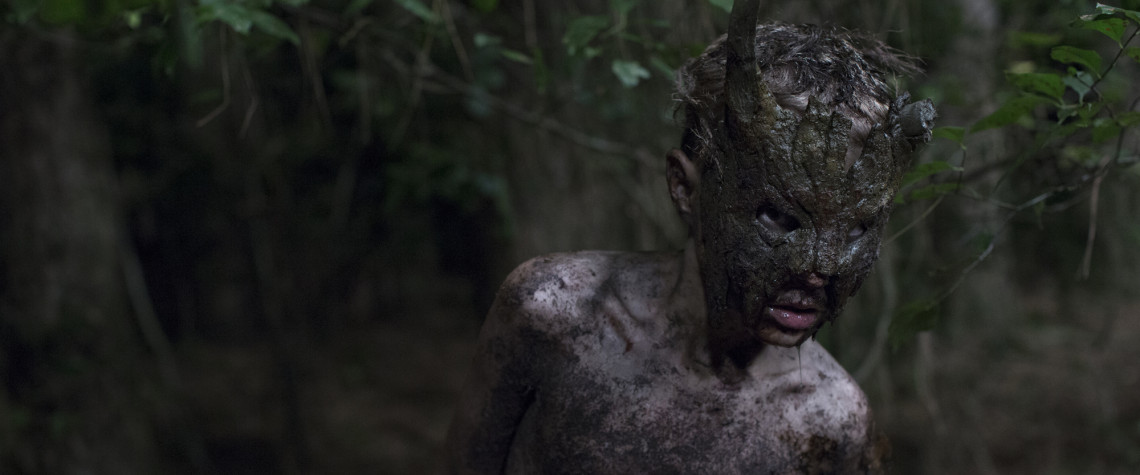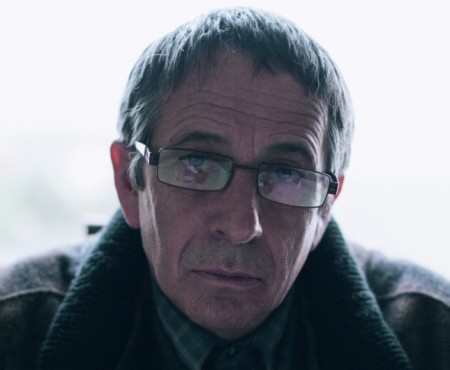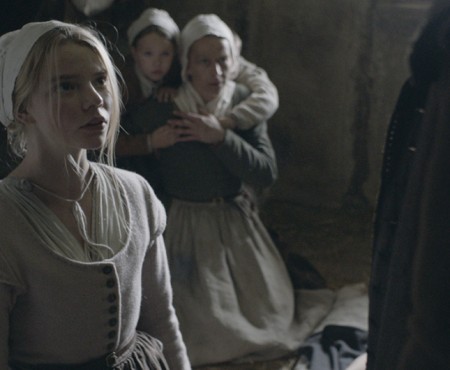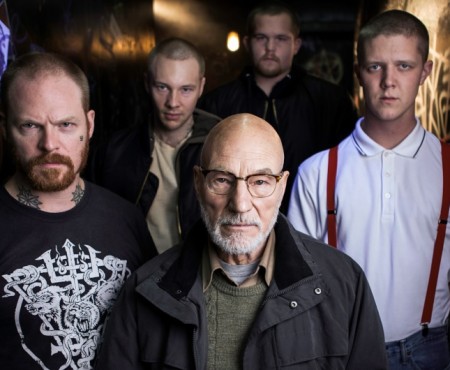After an impressive reception at TIFF, Jonas Govaerts’ Cub landed at Fantastic Fest with great anticipation, with a premise that most would think would be obvious to try, but has been done seldom. A boy scout troop goes on a camping trip, and finds themselves the victims of someone, or something, stalking them in the woods. Layers of mystery begin to reveal themselves and nothing is quite as it seems, challenging the psyches of everyone involved. Sounds great, right? Unfortunately, this attempt at a 70s slasher film homage indicates that we really need to have a talk about this recent genre trend in cinema. What no one seems to understand is that those films had a specific mood and craft to them, and Cub is the kind of imitation that is devoid of any of the suspense, subtext, or story that made the films it apes so special.
Making the classic mistake of an in-media-res opening, Govaerts sucks the air out of the proceedings immediately, almost entirely unaware of how revealing your monster and a potentially shocking moment within the first shot of the film is a grave miscalculation, essentially blowing your load within seconds. Did no one watch Jaws or Alien?! But if the in-media-res opening were the film’s only issue, it’d still be pretty solid. Unfortunately, this isn’t the case, resulting in a film that is nothing more than a concept that never once capitalizes on its potential.
Cub then becomes an incredibly tedious affair, wearing its influences like a Halloween costume. Sure, it’s got creepy-looking, un-killable villains, a synth-heavy score, and lots of entertaining kills, but nothing to contextualize all those things. It’s as if a handful of filmmakers watched The Dark Knight and assumed that, like The Joker, any villain could be completely without motivation or context. But none of these characters are interesting or iconic enough to forgive being devoid of any story context to earn that status. Within the thematic landscape of The Dark Knight, The Joker’s anarchic lack of traditional motivation is contextually earned, but you can’t have a Joker or Michael Meyers without any dramatic reasoning for it.
Without a compelling villain, it’d hopefully fall on the heroes to provide dramatic tension to help us along, but even though Govaerts’ script hints at a traumatic back-story for the boy at the center of these events, those notions are almost immediately and lazily cast aside in favor of forced nihilism. It seems our villains intend on turning Sam to the dark side, like the conflict between Luke, Vader, and the Emperor in Return of the Jedi, with one villain even goading our protagonist into killing his protégé and taking his place. But almost at the exact moment this kind of drama should be expanded upon, the film abandons it in favor of cutting back to yet another admittedly entertaining death scene.
It’s this kind of insistence on imitating slasher tropes that leads to a mean-spirited, irresponsible piece of sloppy filmmaking. A villain convinces Sam to beat a dog to death, but to what end? Turning him to the dark side of murder? Why? What’s so special about Sam? If even just once there had been a moment to help us understand the psychological instability of our protagonist, these kinds of things could slide by, instead of coming off as sadistic and unnecessary.
We need to have a serious talk about this recent trend of 70s horror imitators. Slapping a synth score onto your film may fool some, but a good horror film isn’t just superficially “cool”. It has to tell a coherent story, even if it’s a simple one. Halloween and The Thing may be light on spoken plot, but they have a point of view and purpose. Cub has neither of those things, content only to play at being cool.




















